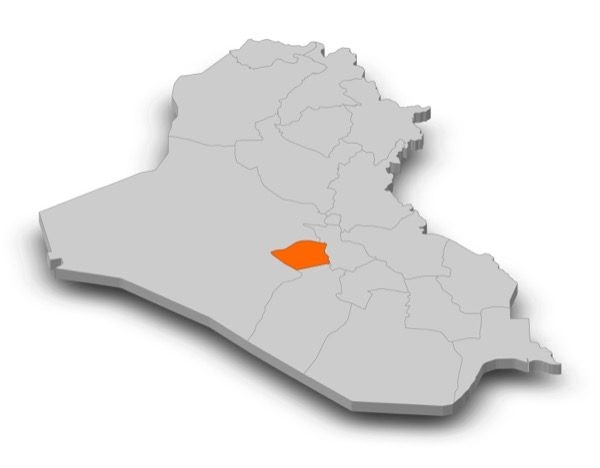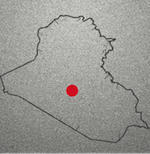
After reciting Tashahhud, Ta’awwuz and Surah al-Fatihah, His Holiness (aba) said that in this era, according to the promise of God, the Promised Messiah (as) was sent as the Hakam and Adl [Judge and Just Arbiter], who, through the teachings of the Promised Messiah (as) was to unite the Muslim Ummah. Those who have seen the discord among the various sects within Islam and employed the use of knowledge, understanding and prayer have come under the banner of the Promised Messiah (as).
Purpose of the Establishment of the Ahmadiyya Muslim Community
His Holiness (aba) explained that the purpose of this community is not to merely create another sect or division. Rather, the establishment of this community is solely according to the prophecy made by the Holy Prophet (sa). Thus, God Almighty commissioned Hazrat Mirza Ghulam Ahmad (as) as the Promised Messiah for this task. It is by the grace of Allah Almighty that for the past 130 years since the establishment of this community and 112 years since the establishment of Khilafat that we have been carrying out this task, Not only have we been teaching non-Ahmadi Muslims the meanings of the Holy Qur’an according to the divinely enlightened understanding of the Promised Messiah (as), but we have also been spreading this message of the Holy Qur’an to non-Muslims as well. No matter the trials, tribulations and obstacles we face, we have and will continue to progress in this matter. Divine communities are always opposed, but in the end, by the grace of Allah Almighty, they always prevail.
His Holiness (aba) said to those who wish to end disorder, discord, and turmoil; those who possess understanding, that they must ponder over this matter.
Passing Through the Islamic New Year
His Holiness (aba) said that we are currently passing through the Islamic month of Muharram. Usually, upon the New Year according to the Gregorian calendar, people greet each other with congratulations for the New Year. However it is unfortunate, that although Islam promotes peace and love, the Islamic New Year is marked by bloodshed in Muslim countries around the world due to these divisions within Islam. Rather than this, we should be focused on how we can unite and truly follow the example of the Holy Prophet (sa).
Uniting the Muslim Ummah
His Holiness (aba) said that we must ponder over the fact that the Holy Prophet (sa) prophesied that after a time of darkness following the initial success of Islam, Khilafat upon the precepts of prophethood will again be established. Thus, the same incidents which took place [in Muharram] and have become the cause for such discord today will in fact prove to be a means of distinguishing the true establishment of Khilafat upon the precepts of prophethood. That incident in fact, was one which should unite the Muslim Ummah rather than divide it.
His Holiness (aba) said that we must ponder, according to the prophecies of the Holy Prophet (sa), who is it that has manifested and been commissioned for the revival of Islam, who is to turn fighting and discord into peace. We believe that this person was Hazrat Mirza Ghulam Ahmad (as). Thus, this month should not merely be one of mourning, and expressing our anger, but should make it one of love and peace. We must ponder during this month and tread the path of the true teachings of Islam. We must tread the path of that Hakam and Adl who was manifested for the revival of Islam.
His Holiness (aba) presented a quote of the Promised Messiah (as) in which he explained that he was commissioned by God Almighty for the revival of Islam, and to unite the Muslim Ummah. He said that until those who are divided in Islam do not accept him, they cannot be saved and they cannot be united. Thus he said he wishes for people to come and join him, so that the cloak of falsehood which has begun to shade and cover the true teachings of Islam may be lifted. His Holiness (aba) commented that this can only be done when people remove all malice from their hearts and turn towards God.
Rank of the Four Rightly-Guided Caliphs
His Holiness (aba) then presented quotes of the Promised Messiah (as) in which he praised the Khulafa-e-Rashideen [Rightly-guided Caliphs of the Holy Prophet (sa)], especially the first three who are often denounced by some Shi’a Muslims. The Promised Messiah (as) said, that in order to be a true Muslims and true follower of the Holy Prophet (sa), one must believe and accept all four of the Caliphs. His Holiness (aba) commented that this was the teaching of the Promised Messiah (as), and if this was to be implemented, then what room would be left for any sort of division amongst the Muslims?
His Holiness (aba) presented a quote of the Promised Messiah (as) regarding Hazrat Abu Bakr (ra), and the various hardships he endured in the cause of Islam. He was in the shadow of the Holy Prophet (sa) at every step of the way. The Promised Messiah (as) said that Hazrat Abu Bakr (ra) was like a ‘second Adam.’ He said that had Abu Bakr (ra) not been present after the demise of the Holy Prophet (sa), then Islam may not have been able to live on, as he was instrumental in establishing and maintaining the teachings and practices of the Holy Prophet (sa).
His Holiness (aba) then presented a quote of the Promised Messiah (as) in which he praised Hazrat Umar (ra), by presenting narrations, such as one in which the Holy Prophet (sa) said that Satan runs from the shadow of Hazrat Umar (ra). He presented another narration in which the Holy Prophet (sa) said that were there to be a prophet after him, it would have been Hazrat Umar (ra).
His Holiness (aba) presented another quote of the Promised Messiah (as) in which he praised the first three Caliphs, including Hazrat Uthman (ra). He explained the hardships they endured for the sake of Islam, They left their families and their homes for the service of Islam. Their examples were such that their light continues to radiate.
His Holiness (aba) then presented a quote of the Promised Messiah (as) in which he praised Hazrat Ali (ra). He wrote that Hazrat Ali (ra) was among those dearest to God Almighty. He was a lion of God, generous and brave. He would never leave his station in battle, even if an entire army stood against him. He would remove the pains and griefs of others, and would help the poor and orphaned. He was also very eloquent in speech; he would utter words which reached the hearts. He was a master in speech to the extent that none could refute his proficiency.
In another instance, the Promised Messiah (as) said that Hazrat Ali (ra) was undoubtedly a great example in many respects, however there were many who rebelled against him during his Caliphate. The Promised Messiah (as) emphatically said that whosoever opposed and rebelled against Hazrat Ali (ra) during his Caliphate committed a grave transgression.
Regarding all four Caliphs, the Promised Messiah (as) wrote that they were true aides of the Holy Prophet (sa) and presented astonishing sacrifices in the way of Islam. Yet they did not do any of this for any sort of rewards, but did it for the love of Islam. How then, can some label them to be deviants and thieves?
His Holiness (aba) said that is the understanding we obtain through the knowledge bestowed upon the Promised Messiah (as). Thus, if we desire to truly serve Islam, we must attach ourselves to the Promised Messiah (as).
Commemorating 10th Muharram
His Holiness (aba) said that the 10th of Muharram is approaching, which marks the martyrdom of Hazrat Imam Hussain (ra). On this day, those especially belonging to the Shi`a sect of Islam express their sorrow and grief through various apparent means. His Holiness (aba) said that the martyrdom of Hazrat Imam Hussain (ra) was indeed a grave travesty, however simply due to the fact that we do not express our grief and sorrow in similar and apparent ways, some level the allegation against our community that we do not honor the family of the Holy Prophet (sa).
His Holiness (aba) said that from the quotes of the Promised Messiah (as) he presented, it is clear that he honoured Hazrat Ali (ra), just as he honoured the three Caliphs before him, for they were all true and rightly appointed Caliphs. His Holiness (aba) then presented various quotes of the Promised Messiah (as) which show his respect and veneration for the family of the Holy Prophet (sa).
The Promised Messiah (as) saw a vision in which the daughter of the Holy Prophet (sa), Hazrat Fatimah (ra) treated him with the love of a mother. He saw that she placed his head in her lap, just as a loving mother does with her child. His Holiness (aba) commented that some non-Ahmadi clerics raise an allegation against this as well, saying that saying this is a form of disrespect to Hazrat Fatimah (ra), however, HIs Holiness (aba) said that this is merely their deluded thinking, for which we can do nothing. It is a pity that the general Muslim population listens to them in such matters. In any case, the Promised Messiah (as) saw that Hazrat Fatimah (ra) was worried for him, on account of the hardships he would have to face, just as a mother is worried for her child. He then saw Hazrat Hassan (ra) and Hussain (ra) with whom he had a brotherly bond and a great deal of love. Thus, the Promised Messiah (as) said that he had a very strong connection with Hazrat Ali (ra) and his family.
The Promised Messiah (as) said that he wrote a Qaseeda [poem] in praise of Hazrat Hussain (ra) which was divinely inspired to him.
His Holiness (aba) said that an expression of love which is done when no one else is around is a true expression of the heart. Thus, His Holiness (aba) related the following incident narrated by Hazrat Mirza Bashir Ahmad (ra), the son of the Promised Messiah (as):
‘Once, during the month of Muharram, the Promised Messiah (as) was resting on a bed in his garden when he called upon our sister Mubaraka Begum and our brother Mubarak Ahmad, the youngest among his children and said, ‘Let me tell you the story of Muharram.’ Then in a tone of great pain, he related the incidents connected with the martyrdom of Imam Hussain (ra); and all the time tears were flowing from his eyes, which he would wipe away with the tips of his fingers from time to time. At the end of the story he said in a great anguish:
‘This was the heartless injustice which the despicable Yazid had perpetrated against the grandson of the Holy Prophet (sa). But soon after, God seized these callous people with His punishment.’
During the narration of these events the Promised Messiah (as) was in the grip of very strong and tender emotions and the thought of the tortures inflicted upon the grandson of his beloved master was causing him intense anguish. All this powerfully reflects the intensity of the love he had for the Holy Prophet (sa).’ [1]
His Holiness (aba) said that in light of such incidents, how can it be said that we do not honour the family of the Holy Prophet (sa). His Holiness (aba) presented another quote of the Promised Messiah (as) in which he strongly condemned anyone who spoke against the family of the Holy Prophet (sa).
His Holiness (aba) said that through the writings of the Promised Messiah (as), the erroneous beliefs of the various sects in Islam have been rectified, which was the duty of the Hakam and Adl. Yet, despite trying to bring the Muslim Ummah together, it is our community which is the target of persecution and denounciation. However, our community will continue to tread forth. His Holiness (aba) said that the sacrifices made by this Community will never go to waste. His Holiness (aba) said that the Promised Messiah (as) stated that this Community will truly prevail not only in spirit as Hazrat Imam Hussain (ra) but will prevail apparently as well.
His Holiness (aba) said that this month especially should be spent in prayers, and prayed that Muslims may be afforded understanding and do not use this time as an excuse to harm one another, and may they understand that true success and true victory lies solely in attaching oneself with the Promised Messiah (as).
Summary prepared by The Review of Religions
Endnotes
- Seerat Tayyiba, Hadhrat Mirza Bashir Ahmad(ra), p.31




Add Comment